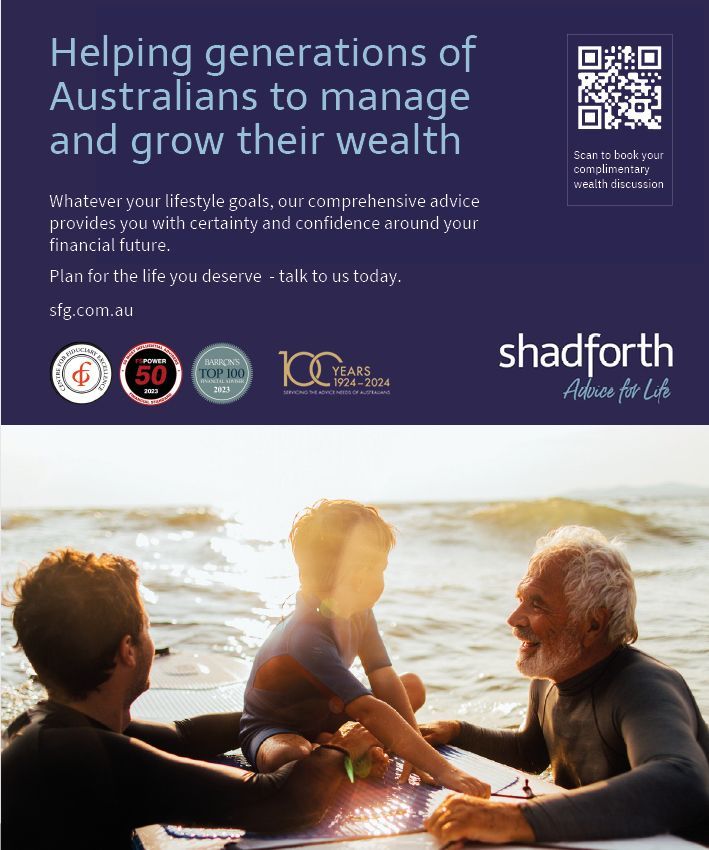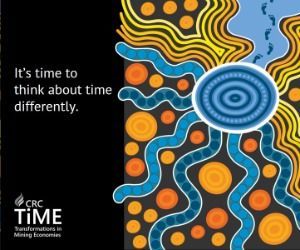1MG FlippingBooks
RESPONSIBLE INVESTORS WILL SHAPE AUSTRALIA'S FUTURE
Simon O'Connor
Simon O’Connor says a significant force is emerging within financial markets that has the potential to shape a stronger, more sustainable and equitable future across Australia.

Financial markets, and particularly the investment industry, have taken up the banner of sustainability and are sending a clear message to large corporations across the world that expectations around the management of their environmental, social, cultural governance (ESG) and ethical impacts have lifted. What we’re seeing is not a mere trend but a permanent shift, driven by a desire to deliver stronger long-term investment outcomes that align with client interests and contribute to a prosperous, sustainable future.
Responsible investors have emerged as a major force in Australia in the wake of a 20-year evolution from a niche collection of investors that sought to avoid harm into a sophisticated network that manages the full gamut of investment risks, including those across ESG. Now, the next iteration of this shift is emerging: an investment market that seeks to have real-world impact in shaping a stronger future.
Underpinning this is the recognition that, quite simply, companies that create a safe working environment, protect human rights, promote diversity, respect stakeholder communities and minimise their contribution to climate change represent better investments. Responsible investors are seeing that factoring in people, society and the environment, alongside financial performance, when making and managing investments leads to better-informed decisions. It enables them to navigate turbulent times – to avoid the biggest risks and capture more opportunities.
Australia’s responsible investment market is continuing its upward trajectory, with the Responsible Investment Association Australasia's (RIAA) 19th annual Responsible Investment Benchmark Report Australia showing that responsible investment now represents 37 per cent ($1.149 trillion) of Australia’s total $3.155 trillion in professionally managed assets. The ongoing growth of this market has been driven by three main factors:
- an acknowledgement that managing ESG risks supports strong investment outcomes;
- an alignment with strong client preference for investments that avoid harm and do good; and
- a growing focus by regulators on how investors are managing significant ESG risks such as climate change and modern slavery.
Over a period of 20+ years, a strong body of evidence has been collated to show that responsible investment delivers stronger risk-adjusted returns and superior overall financial performance. RIAA’s annual study shows responsible-investment Australian share funds and multi-sector growth funds outperforming mainstream funds over one-, three-, five- and ten-year time horizons.

The views of investors and most Australians are in alignment. Nationwide research conducted by RIAA in 2020 shows the overwhelming majority of Australians now expect their savings (87 per cent) and superannuation (86 per cent) to be invested responsibly. Two in three people don’t want their money causing harm to the planet – whether via environmental degradation, the burning of fossil fuels or logging. Moreover, the majority of people expect their money to go beyond “avoiding harm” and to “do good”.
At the same time, financial regulators and central banks across the world have been clear in their view that the risks of climate change are distinctly financial in nature. In early 2020, the Reserve Bank of Australia joined with more than 60 other central banks to warn of the significant economic risks associated with current emissions and provide specific guidance on the integration of climate risks into decision-making.
There is no one way to engage in responsible investing, but rather a range of approaches in play. However, as a minimum standard, investment managers are including ESG risks and opportunities into financial analysis and decision-making.
It is this commitment to ESG integration, combined with active ownership from a sizeable proportion of Australia’s largest institutional investors, that has culminated in increasing shareholder advocacy on issues such as Indigenous cultural protection, sexual harassment, climate change and gender diversity. Where engagement hasn’t managed to influence corporate behaviour, shareholder disquiet has played out through large votes against boards, leadership spills and, increasingly, divestment by investors from the most harmful sectors.
Negative screening is another important responsible investment approach, with weapons, tobacco and gambling being the most frequently screened categories. Increasingly, however, it is the broad, system-wide risks that responsible investors are recognising a need to proactively manage if our economy and society are to flourish.
The unforgettable year of 2020 has exposed vulnerabilities in our economy. The catastrophic bushfires and COVID-19 pandemic highlighted the inextricable links between our markets and the health of our environment and society. Long-term investors have recognised these links and, acting in their clients’ long-term interests, are now looking to lead in response to issues such as climate change.
Recognising the enormous risks that climate inaction poses to the economy – and, in turn, investment returns – numerous Australian super funds are committing to reducing carbon intensity in their investment portfolio. This is an important signal that growing levels of capital are seeking to invest in companies making the shift to a lower-carbon economy, a trend that will increasingly influence markets and valuations in the decades ahead.
At the start of the 2020s, we find ourselves in a period in which the responsible-investment industry has reached a tipping point, poised to reshape not only finance but the very nature of corporate Australia.
Simon O’Connor is the CEO of the Responsible Investment Association Australasia (RIAA). He sits as the co-chair of the Australian Sustainable Finance Initiative, chairs the Global Sustainable Investment Alliance, and is a member of the Aotearoa New Zealand National Advisory Board on Impact Investment.










